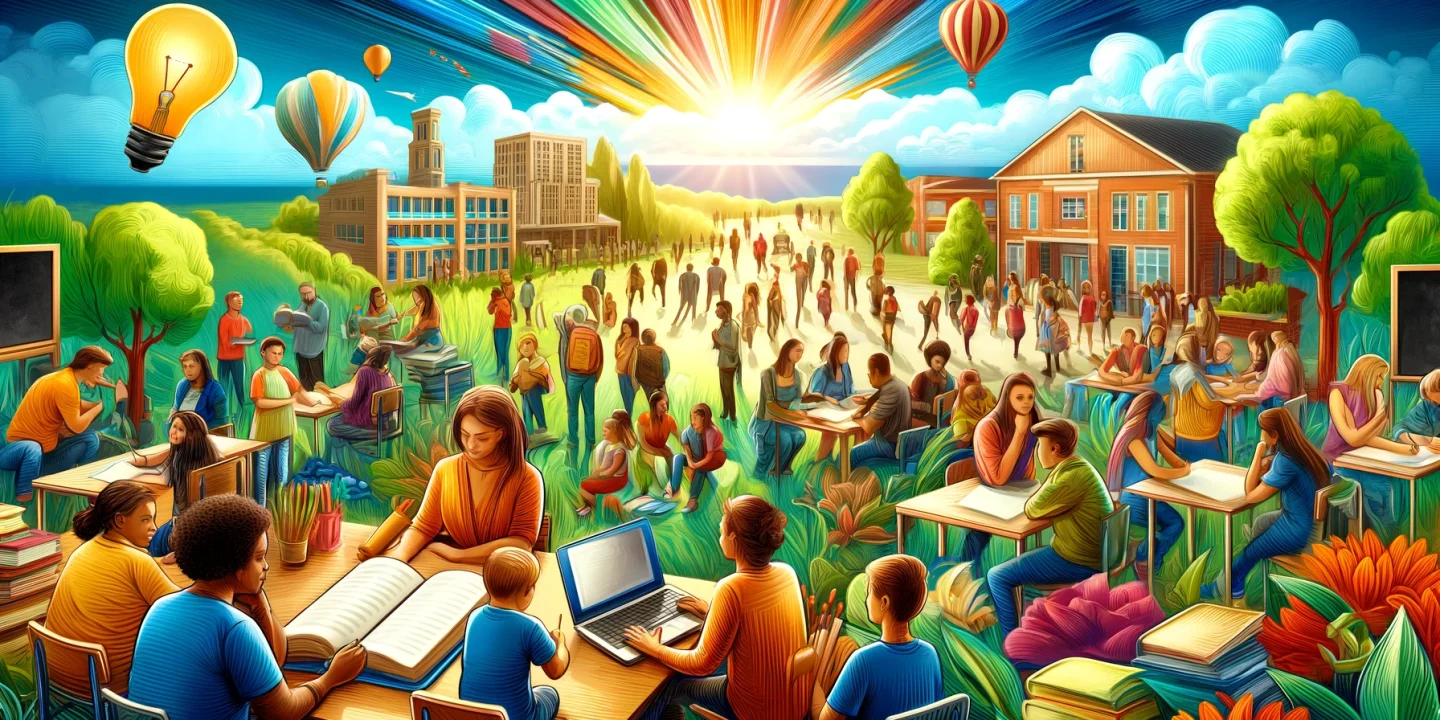Introduction
Education is a powerful force that shapes individuals and societies, offering pathways to personal growth, economic stability, health, and social equity. This article explores the transformative power of education education on individuals and communities, highlighting how learning can empower and bring about significant positive change.
Key Takeaways
- Education fosters personal growth and development.
- It is a critical tool for economic empowerment.
- Education improves health and well-being.
- It promotes social equity and reduces inequalities.
- Technology plays a vital role in expanding educational access.
The Role of Education in Personal Development
Education nurtures critical thinking, creativity, and problem-solving skills. Furthermore, it enables individuals to understand and navigate the world, fostering self-awareness and personal growth. By acquiring knowledge, people gain the skills needed to pursue their interests and goals, which ultimately leads to a more fulfilling life.
Education as a Tool for Economic Empowerment
Education opens doors to better job opportunities and economic stability. Individuals with higher levels of education tend to have higher earning potential and are less likely to experience unemployment. Education also equips people with the entrepreneurial skills necessary to start and sustain businesses, driving economic growth within communities.
The Impact of Education on Health and Well-being
Education positively impacts health by promoting healthier lifestyles and increasing access to healthcare information. Educated individuals are more likely to make informed health choices, leading to improved physical and mental well-being. It also plays a crucial role in reducing infant mortality rates and increasing life expectancy.
Education and Social Equity
Education is a powerful tool for promoting social equity. It helps reduce social disparities by providing equal opportunities for all, regardless of background. Through inclusive education systems, marginalized groups can gain the skills and knowledge necessary to break the cycle of poverty and discrimination.
Case Study 1: Malala Yousafzai – Education for Girls
Malala Yousafzai, a Pakistani activist, has become a global symbol of the fight for girls’ education. After surviving a Taliban attack for advocating girls’ education, she continued her efforts. Subsequently, she became the youngest-ever Nobel Prize laureate. Moreover, Malala’s story underscores the importance of education in empowering girls and transforming societies.
Case Study 2: The Green Bronx Machine – Transforming Communities
The Green Bronx Machine, founded by Stephen Ritz, is an organization that uses urban agriculture to improve education, health, and the environment in underserved communities. Moreover, by integrating gardening into the curriculum, the initiative has boosted academic performance and provided fresh produce to local families, thereby demonstrating how education can drive community transformation.
The Role of Technology in Expanding Access to Education
Technology has revolutionized education by making learning more accessible and flexible. Online courses, digital libraries, and educational apps provide opportunities for lifelong learning and reach students in remote and underserved areas. Technology also facilitates personalized learning experiences, catering to diverse needs and learning styles.
Challenges in Global Education
Despite the progress, significant challenges remain in achieving universal education. Barriers such as poverty, gender inequality, conflict, and lack of infrastructure hinder access to quality education. Addressing these challenges requires concerted efforts from governments, organizations, and communities worldwide.
Strategies for Promoting Education in Underserved Areas
To promote education in underserved areas, it is essential to invest in infrastructure, provide teacher training, and develop inclusive curricula. Community involvement and partnerships with NGOs and private sectors can also enhance educational opportunities. Leveraging technology and innovative solutions can further bridge educational gaps.
Conclusion
The power of education to transform lives and empower communities is undeniable. By investing in education, we can create a more equitable, prosperous, and healthy world. It is crucial to continue efforts to expand access to quality education and address the challenges that hinder its reach.
FAQs
1. How does education contribute to personal development?
Education fosters critical thinking, creativity, and problem-solving skills, enabling individuals to pursue their goals and interests.
2. Why is education important for economic empowerment?
Education opens doors to better job opportunities, higher earning potential, and entrepreneurial skills, driving economic growth.
3. How does education impact health and well-being?
Education promotes healthier lifestyles and informed health choices, leading to improved physical and mental well-being.
4. What role does education play in promoting social equity?
Education provides equal opportunities for all, reducing social disparities and empowering marginalized groups.
5. How can technology expand access to education?
Technology makes learning more accessible through online courses, digital libraries, and educational apps, reaching students in remote areas.
For further reading, visit UNESCO and World Bank Education.

